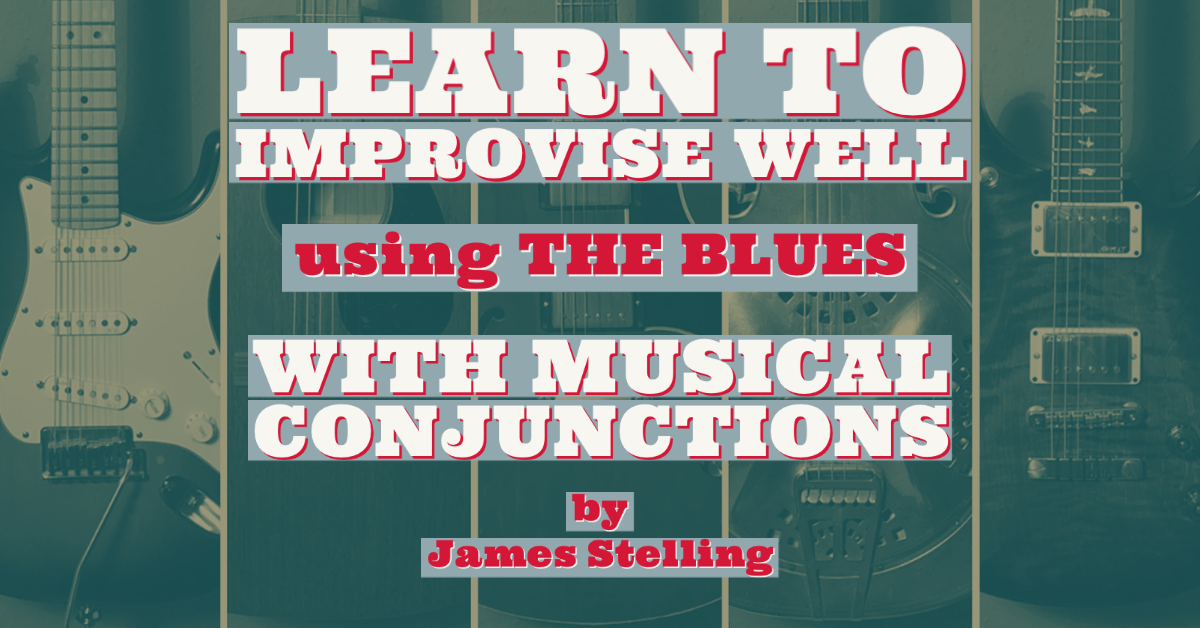The following is a preview of my upcoming book - Learn to Improvise Well with Musical Conjunctions.
When discussing music we often hear that ‘music is a language’ but that analogy is infrequently extended to yield any actionable strategies for improving one’s ability to learn how to improvise using this musical language.
That is exactly what this book intends to do.
Conjunctions are words that link other words & phrases together. They allow you to form complex sentences.
What we need in order to learn how to improvise well are musical conjunctions. These will allow us to connect our ideas and form the basis of a strong musical vocabulary.
We are going to examine blues guitar vocabulary and extrapolate the musical conjunctions from it. We’ll then learn 3 solos using these musical conjunctions to illustrate how malleable they are and how they form the basis of an improviser’s vocabulary.
The above phrase is the sort of thing you might normally find as an example of a blues ‘lick’. Personally I would consider this to be a collection of 3 musical conjunctions (small licks/words) that form a musical sentence.
You can see these 3 musical conjunctions below.
These small musical words can be reordered to make completely different musical sentences. Below you can see the 3rd musical conjunction straddling the end of beat 3 into beat 4 as part of an entirely different musical sentence.
This is what improvisers are doing when generating these ‘licks’ on the fly. In the same way that we can all immediately and effortlessly select words to articulate our ideas, improvisers are selecting lots of small musical words (conjunctions) and ordering them in such a way as to articulate their musical ideas.
If we hope to be able to improvise well what we first need to do is collate a vocabulary of these small musical words. Our musical conjunctions.
This has been a preview of my upcoming book - Learn to Improvise Well with Musical Conjunctions.



